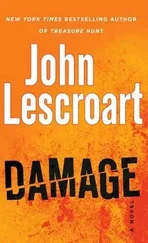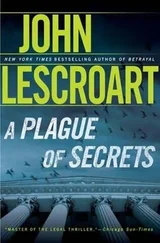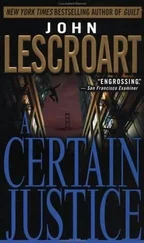He walked to the corner nearest the bull’s ear—a memento from Spain, I later learned—and lifted away the tapestry, showing a large hole opening into blackness, into which he stepped, motioning for me to follow. He lit a tallow and we moved through a narrow, high cave for several hundred meters. So this was where he disappeared to in the afternoons. I wondered where the cave would come out.
“Handy having all the limestone around here,” he said. “It took comparatively little work to finish this passage after I arrived here.”
I found that difficult to believe, though I knew that some of the natural caves in the region extended for incredible distances. In the end, the cave proved to be nearly a kilometer in length, and I was totally unprepared for where it abutted. Lupa pulled aside another bit of rug and stepped into a cellar of amazing fragrance.
“Where are we?” I asked. The smell alone had nearly driven away my headache.
He seemed almost playful as he leaned back against a waist-high bench. He held the candle out behind him, and I could make out rows and rows of flowers. He breathed deeply.
“Marvelous,” he said. “It always affects me.”
Then quickly he straightened up again and moved to a door, which led to a stairway, which in turn opened into a well-lighted planting room. There was a partition in front of the door, and we waited behind it while Lupa peeked out to see who was in the shop. When he was satisfied, we walked out. A woman, about thirty, with dark hair and features, stood talking with a man whose back was toward us as we approached. Lupa went up to the woman, kissed her on the cheek, and said something to her in a language I didn’t understand—and I speak five languages. She disappeared to where we’d been.
“Watkins.”
“Hello.”
The two men embraced and began speaking in English.
“Where have you sent Anna?” asked the stranger.
“She forgot to turn on the cellar lights again. The plants will surely die. I’m glad you’re here. We’ve had problems.”
“I’ve heard already. Routier’s been killed. No clues. You were there. Who did it?”
The man was in his twenties and would have looked perfectly nondescript except for the great swelling in his left cheek. His hair was short and brown, his suit common, and he wore no tie. Occasionally he chewed at his cheek.
“I haven’t much of an idea,” said Lupa. “It could have been any of us. Oh, excuse me, this is Jules Giraud. Joseph Watkins.”
We shook hands as the woman returned.
“Look at his cheek, will you?” she said. “Those damned olives again.”
Watkins grinned crookedly. “Addicted,” he said. “Can’t get enough of the blasted things.”
“He’s been horrible all morning,” said the woman. “Eating so many of them he can’t talk, spitting the pits wherever he happens to be. I should have tossed him out long ago. If he wasn’t so . . .” She smiled and touched his arm. He moved aside. “Hello,” she said, crossing to me, “my name is Anna Dubrov. I’ve seen you before in town.”
I nodded. “Jules Giraud.”
Lupa suggested we go to the back of the shop. On the way, Watkins leaned over one of the potted plants and straightened up again without the swelling in his cheek. He was grinning broadly.
“Anyone care for an olive?” he asked, taking ten or fifteen from his coat pocket. When no one responded, he deposited the entire handful into his mouth.
Lupa stood with an arm around Anna, waiting for this frivolous Englishman to finish chewing. When the pits had been stuffed into his cheek, Lupa began.
“Any news?”
“Yes, and specific.” Once he started talking, he was entirely businesslike. Perhaps he wasn’t as frivolous as he seemed.
“Continue.”
“Well, naturally you’re here on your own affairs, something about assassinations and so forth, but I thought—”
“You can drop that,” said Lupa. “M. Giraud, as you know, is an agent of the French, and he is now in our confidence.” He turned to me, continuing, “I am a free operative working for the English government. I know all this has been denied time and again in your inquiries about me. You know how that is. My uncle is a nonambulatory genius whom I detest, but he is probably the most important man in England, and we share some views during wartime.”
“So you work for England?”
“For the time being, yes, but I direct my own inquiries.”
“By the way,” said Watkins, “Altamont says—”
“That will do,” Lupa said abruptly. “Let us get on with your information.”
“Yes, well, um . . .” He fumbled a moment, then leaned over and spit out the pits. “We’ve got information that he is not here for assassination. You’re aware of the arms and munitions factory at St. Etienne?”
Lupa’s gaze was withering.
Watkins pressed on. “It’s going to be blown.”
I found myself smiling. “How do you know?”
“One of the boys flushed a Kraut spy and persuaded him to drop a few tidbits, and this was one of them. Unfortunately, our man brought some friends. They all got a bit carried away during the interrogation, and the Kraut died before he could be of much more use.”
Lupa looked at me. “And they say that we are fighting the barbarians.” To Watkins: “Did you get any descriptions, anything definite?”
“Not of your man, no. But there was something.”
“What was that?”
“It’s to be an inside job.”
I laughed, and the man looked at me angrily.
“What’s funny, mate?”
“I’m sorry,” I said, “but it would have to be. Have you seen the place? It’s guarded rather completely.”
Lupa was absently running his fingers through some dirt in a pot next to him. He seemed lethargically calm until he spoke, at which time he fired his questions at the other man.
“Where was he caught?”
“Marseilles. Usual narcotics stuff. He was delivering to their man in St. Etienne.”
“Why didn’t the fools let him deliver?”
“I think you’ve answered your own question. The fool—that is, our man—wanted to make sure he didn’t escape. They knew something big was going on in this area. He wanted to get a piece of it.”
“And lose the pie in the bargain.” Lupa was annoyed, and I could see why.
“One other thing bothers me,” Watkins said.
“What’s that?”
“I think he is here to assassinate. That is patently a part of it. Remember, we have had—what is it now?—three deaths of operatives in the past year. It’s just a hypothesis, but it is corroborated by the lack of any other overt activity until he moves. That’s all. Of course, no clues. But the man must sooner or later make a mistake. He must.”
He shrugged and reached into his pocket for some more olives. Someone walked into the store and Anna went to the front. Lupa pulled up a stool and sat down. He seemed completely engrossed in the plant beside him. Suddenly he looked up and spoke.
“I hope you’re right. Because if he is only here to blow the factory, then when the job is done, he’ll disappear. Whereas if he is here for a dual purpose, one job may give us the clue to the other.”
“You think he’s the man who killed Routier?” asked Watkins.
“Do you think he isn’t?”
“Then he must have been . . .”
“Precisely,” Lupa said, “he must have been among our gathering last night.”
I started to object. After all, everyone who had been there was a friend. But even as I began my defense, I realized that there was no other conclusion.
“That’s good,” Watkins said. “It narrows the field considerably.”
“Yes,” Lupa agreed. “Yes, it does.”
He got up and beckoned me to follow him. He paused at the screen to the back door. “Joseph, you’ll have to go to St. Etienne.”
Читать дальше












